Plumbing is a crucial aspect of any residential or commercial building, involving the installation and maintenance of various pipes and fixtures for transporting water, gas, and other fluids. While most people are aware of the importance of plumbing, few have an in-depth understanding of the different types of pipes used in the industry.
In this blog, we will explore the various types of pipes used in plumbing and their unique characteristics.
1. Copper Pipes
Copper pipes are one of the most popular types of pipes used in plumbing due to their durability, versatility, and resistance to corrosion. They are suitable for transporting both hot and cold water and are often used for indoor plumbing. Copper pipes come in different sizes, and their ease of use makes them an ideal choice for DIY plumbing projects.
Copper pipes are also resistant to bacteria, making them a hygienic choice for plumbing systems. Additionally, they are recyclable, which makes them an eco-friendly option. However, copper pipes can be expensive compared to other types of pipes, and they are vulnerable to theft, making them a less attractive option for outdoor plumbing.
2. PVC Pipes
PVC (polyvinyl chloride) pipes are commonly used in plumbing systems due to their affordability, lightweight, and ease of installation. They are made of a plastic material that is durable and resistant to corrosion, and they are commonly used to transport cold water, making them ideal for drainage and waste systems.
One of the significant advantages of PVC pipes is that they are resistant to chemicals, making them suitable for industrial plumbing systems. They are also resistant to UV rays, making them an ideal choice for outdoor plumbing. However, PVC pipes are not suitable for transporting hot water as they may warp or melt at high temperatures.
3. PEX Pipes
PEX (cross-linked polyethylene) pipes are a newer type of pipe used in plumbing. They are flexible and easy to install, making them ideal for use in tight spaces. PEX pipes are made of a plastic material that is durable and resistant to corrosion. They are commonly used to transport both hot and cold water and are often used in radiant heating systems.
PEX pipes are easy to work with and require fewer fittings, making them a cost-effective option for plumbing systems. They are also resistant to freezing, making them an ideal choice for cold climates. However, PEX pipes can be vulnerable to UV rays, which means they should not be used for outdoor plumbing systems.
Overall, choosing the right type of pipe for your plumbing system depends on several factors, including the purpose, location, and budget. Understanding the unique characteristics of each type of pipe can help you make an informed decision and ensure the proper functioning of your plumbing system.
4. Galvanised Steel Pipes
Galvanised steel pipes are another popular type of pipe used in plumbing. They are made of steel and coated with a layer of zinc to prevent corrosion. Galvanised steel pipes are commonly used for outdoor plumbing systems, such as water mains and sewage systems.
One of the significant advantages of galvanised steel pipes is their durability. They can last for decades without the need for replacement, making them a cost-effective option for plumbing systems. They are also resistant to fire and heat, making them an ideal choice for industrial plumbing systems. However, galvanised steel pipes can be heavy and difficult to install, which means they may not be suitable for DIY plumbing projects.
5. Cast Iron Pipes
Cast iron pipes are a type of pipe commonly used in plumbing systems. They are made of iron and coated with a layer of bituminous material to prevent corrosion. Cast iron pipes are commonly used for underground plumbing systems, such as sewer lines and drainage systems.
One of the significant advantages of cast iron pipes is their durability. They can last for decades without the need for replacement, making them a cost-effective option for plumbing systems. They are also resistant to fire and heat, making them an ideal choice for industrial plumbing systems. However, cast iron pipes can be heavy and difficult to install, which means they may not be suitable for DIY plumbing projects.
6. ABS Pipes
ABS (acrylonitrile-butadiene-styrene) pipes are a type of plastic pipe commonly used in plumbing systems. They are lightweight and easy to install, making them an ideal choice for DIY plumbing projects. ABS pipes are commonly used for drainage and waste systems.
One of the significant advantages of ABS pipes is their affordability. They are cheaper than many other types of pipes, making them a cost-effective option for plumbing systems. They are also resistant to chemicals, making them an ideal choice for industrial plumbing systems. However, ABS pipes are not suitable for transporting hot water as they may warp or melt under high temperatures.
7. HDPE Pipes
HDPE (high-density polyethylene) pipes are a type of plastic pipe commonly used in plumbing systems. They are flexible and easy to install, making them an ideal choice for use in tight spaces. HDPE pipes are commonly used for water mains and irrigation systems.
One of the significant advantages of HDPE pipes is their durability. They can last for decades without the need for replacement, making them a cost-effective option for plumbing systems. They are also resistant to UV rays, making them an ideal choice for outdoor plumbing. However, it should be noted that HDPE pipes are not suitable for use with hot water, as they may warp or melt under high temperatures.
8. CPVC Pipes
CPVC (chlorinated polyvinyl chloride) pipes are a type of plastic pipe commonly used in plumbing systems. They are lightweight and easy to install, making them an ideal choice for DIY plumbing projects. CPVC pipes are commonly used for hot and cold water supply systems.
One of the significant advantages of CPVC pipes is their resistance to high temperatures. They can withstand temperatures of up to 200 °F, making them an ideal choice for hot water supply systems. They are also resistant to corrosion, making them a durable option for plumbing systems. However, it should be noted that CPVC pipes are more expensive than other types of plastic pipes, which may make them less attractive to some homeowners.
9. Polybutylene Pipes
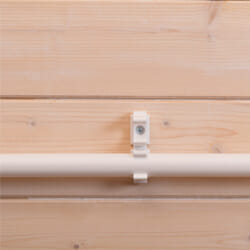
One of the significant advantages of polybutylene pipes is their affordability. They are cheaper than many other types of pipes, making them a cost-effective option for plumbing systems. However, polybutylene pipes are no longer used in modern plumbing systems as they are prone to cracking and leaking. If your home still has polybutylene pipes, it is recommended that you replace them as soon as possible to avoid costly water damage.
Overall, understanding the different types of pipes available for your plumbing system is crucial for ensuring that it functions efficiently and safely. Depending on your specific needs and preferences, you can choose the type of pipe that best suits your plumbing project.
Factors to Consider When Choosing a Type of Pipe
When choosing a type of pipe for your plumbing system, it’s crucial to consider various factors to make an informed decision. Some of the factors to consider are cost, durability, functionality, and the specific needs of your plumbing system.
Here are the factors you need to consider:
- Purpose: The intended use of your plumbing system is a critical factor in determining the appropriate pipe to use. For example, if you need to construct a hot water supply system, you should choose pipes that can handle high temperatures. Conversely, if you are building an irrigation system, you might need pipes that are flexible and resistant to chemicals.
- Location: Where you intend to install your plumbing system is another critical factor to consider. If your system will be installed outside, you must choose a pipe that can withstand environmental elements like UV rays, wind, and rain. PVC pipes are an excellent choice for outdoor plumbing as they are resistant to UV rays. Conversely, if your system will be indoors, you might need to choose a pipe that can withstand high temperatures, particularly if it’s a hot water supply system.
- Cost: The cost of the pipe is another essential consideration when choosing a type of pipe. Different types of pipes have varying costs, and you should choose one that is within your budget. However, it’s worth noting that while some pipes may have lower installation costs, they may require frequent repairs and replacements, making them more expensive in the long run. Therefore, it’s crucial to consider the long-term costs of the pipe before making a decision.
- Durability: The durability of the pipe is essential to ensuring the longevity of your plumbing system. Frequent pipe replacements can be expensive and time-consuming, so it’s crucial to select a durable pipe that can last for a long time without requiring replacement. Copper pipes are known for their durability and longevity, but they can be more expensive than other types of pipes.
- Environmental Impact: Finally, consider the environmental impact of the pipe. Some pipes may have negative environmental impacts, while others may be eco-friendly. It’s advisable to choose a pipe that is as environmentally friendly as possible. PVC pipes, for example, are not considered environmentally friendly due to their production and disposal methods. In contrast, HDPE pipes are recyclable and eco-friendly, making them a great option for those who prioritise sustainability.
By considering these factors, you can choose the most suitable type of pipe for your plumbing system, taking into account its specific requirements, budget, and environmental concerns.
Related Articles:
Tips for Maintaining Your Plumbing System with Different Types of Pipes

Here are some tips for keeping your plumbing system in good shape:
- Regular inspections: Have a professional plumber inspect your plumbing system at least once a year to identify and fix any issues before they turn into major problems. Regular inspections can also extend the life of your plumbing system by detecting and repairing issues early.
- Clear clogs: Clogs can cause serious damage to your plumbing system, so it’s important to clear them as soon as possible. Avoid using harsh chemicals and instead use a plunger or drain cleaner to clear clogs. Remember to never flush non-degradable items down the toilet or sink, as they can cause clogs.
- Keep the system clean: Use a drain strainer to prevent debris from entering your plumbing system. Dispose of grease and oil in the trash instead of pouring it down the drain.
- Avoid harsh chemicals: Harsh chemicals can corrode your pipes and cause leaks. Try using natural cleaning solutions like baking soda and vinegar to keep your drains clean.
- Fix leaks promptly: Leaks can lead to water damage and increased water bills, so it’s important to fix them quickly. Call a plumber to assess the situation and make the necessary repairs.
- Proper use: Proper use of your plumbing system is essential for avoiding clogs and leaks. Only flush toilet paper and human waste down the toilet, and avoid pouring oil, grease, and coffee grounds down the drain.
- Insulate pipes: Insulating your pipes can prevent them from freezing and bursting during the winter months. Pipe insulation is easy to install and can save you money on energy bills while preventing mould and condensation.
By following these tips, you can maintain your plumbing system and ensure it lasts for years to come.
Also Read: Pipe Relining vs Pipe Replacement
Final Thoughts
In conclusion, plumbing is a crucial aspect of any residential or commercial building. The choice of pipe used in a plumbing system can impact its durability, cost, and effectiveness. It is important to understand the different types of pipes available to make an informed decision when choosing the right type of pipe for your plumbing system.
Copper pipes are versatile and durable, making them a popular choice for indoor plumbing. PVC pipes are inexpensive and easy to install, making them ideal for drainage and waste systems. PEX pipes are flexible and easy to work with, making them a cost-effective option for plumbing systems. Galvanised steel pipes are resistant to fire and heat, making them a suitable choice for industrial plumbing systems. Cast iron pipes are also durable and resistant to fire and heat, making them ideal for underground plumbing systems.
ABS pipes are affordable and chemical-resistant, making them a good choice for industrial plumbing systems. HDPE pipes are durable and UV-resistant, making them ideal for outdoor plumbing systems. CPVC pipes are resistant to high temperatures, making them a suitable choice for hot water supply systems. Lastly, polybutylene pipes were once popular due to their affordability but are no longer recommended due to their tendency to crack and leak.
It’s worth noting that while selecting the right type of pipe is critical, proper installation and maintenance are equally important for ensuring the longevity and effectiveness of your plumbing system. To avoid costly errors and potential damage, it is advisable to hire a licensed and experienced plumber to handle the installation and maintenance of your plumbing system. Therefore, understanding the various types of pipes used in plumbing systems can aid in making an informed decision when selecting the right type of pipe for your requirements. With the correct installation and maintenance, the right pipe can help ensure the longevity, durability, and effectiveness of your plumbing system.

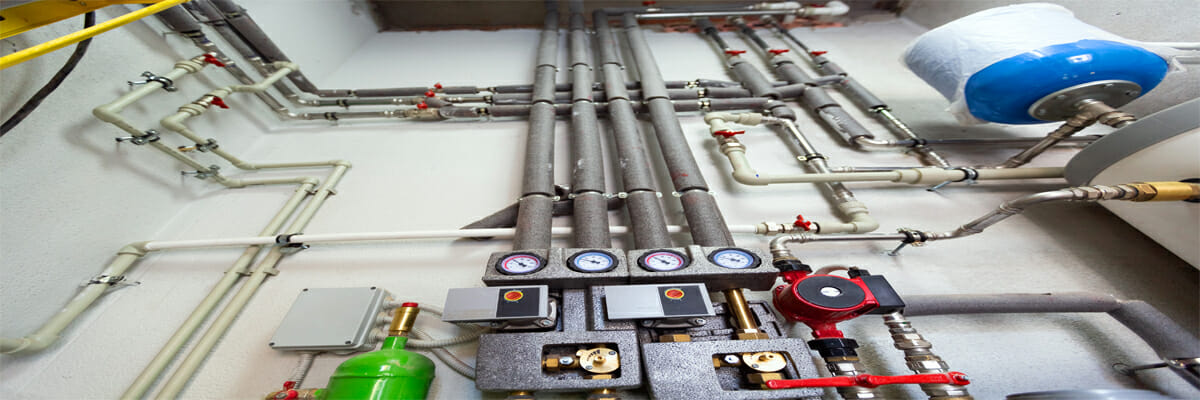
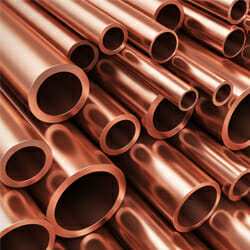
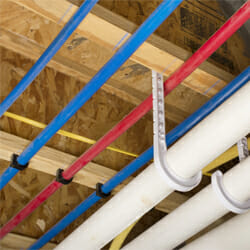
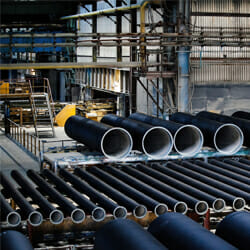
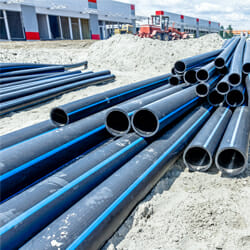
 Enquire
Enquire